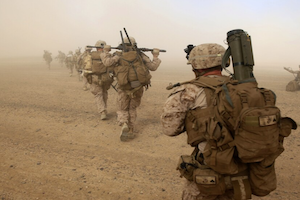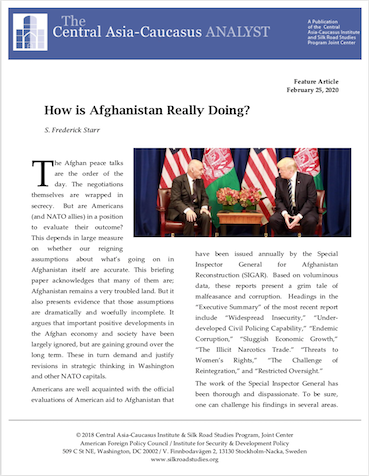COVID-19 and Afghanistan's Conflict Dynamics
By Sudha Ramachandran
May 26, 2020, the CACI Analyst
The Covid-19 crisis is widely expected to have devastating impact on war-ravaged and resource-scarce Afghanistan, and could even extract a human toll that exceeds that on account of decades of fighting in the country. However, the pandemic has the potential to bring positive change. It provides space to the main conflict actors to co-operate in providing treatment to people in parts of the country that are under Taliban control and thus beyond the reach of government health workers. It will require the conflict actors to silence their guns and at least temporarily put aside their decades-old hostility.
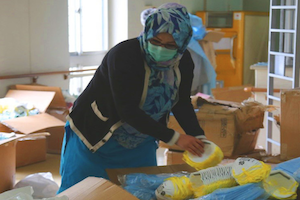
Central Asia Nervously Awaits Withdrawal of Foreign Militaries from Afghanistan
By John C. K. Daly
April 8, 2020, the CACI Analyst
After 18 months of negotiations, the U.S. and the Taliban signed their bilateral landmark “peace agreement” in Doha on February 29, alongside representatives from more than 30 nations. Afghanistan’s northern neighboring post-Soviet states, Tajikistan, Uzbekistan and Turkmenistan, are concerned whether Afghanistan’s post-ceasefire instability will intensify and subsequently spill across the borders after foreign military missions withdraw. If the unrest roiling Afghanistan erupts into open military confrontation following the departure of foreign military forces, the question is whether the three nations alone can mount an acceptable response, particularly Turkmenistan whose international neutrality stance is recognized by the United Nations.
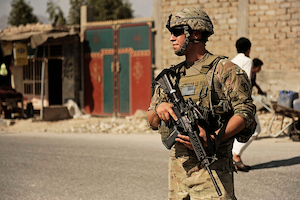
What Will the U.S.-Taliban Peace Agreement Bring for Afghanistan?
By Sudha Ramachandran
March 7, 2020, the CACI Analyst
The Agreement for Bringing Peace to Afghanistan, signed by the U.S. and the Taliban on February 29, is a major milestone in the almost two-decade long war between the two adversaries. While it could change the trajectory of the conflict, it is unlikely to bring peace to Afghanistan. Narrow self-interest of the two signatories drove the deal, rather than the objective of peace in Afghanistan. This and the flawed content of the agreement will in all likelihood lead to escalating violence in the coming months.
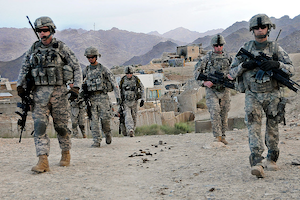
How is Afghanistan Really Doing?
How is Afghanistan Really Doing?
By: S. Frederick Starr
The Afghan peace talks are the order of the day. The negotiations themselves are wrapped in secrecy. But are Americans (and NATO allies) in a position to evaluate their outcome? This depends in large measure on whether our reigning assumptions about what’s going on in Afghanistan itself are accurate. This briefing paper acknowledges that many of them are; Afghanistan remains a very troubled land. But it also presents evidence that those assumptions are dramatically and woefully incomplete. It argues that important positive developments in the Afghan economy and society have been largely ignored, but are gaining ground over the long term. These in turn demand and justify revisions in strategic thinking in Washington and other NATO capitals.
Americans are well acquainted with the official evaluations of American aid to Afghanistan that have been issued annually by the Special Inspector General for Afghanistan Reconstruction (SIGAR). Based on voluminous data, these reports present a grim tale of malfeasance and corruption. Headings in the “Executive Summary” of the most recent report include “Widespread Insecurity,” “Under- developed Civil Policing Capability,” “Endemic Corruption,” “Sluggish Economic Growth,” “The Illicit Narcotics Trade.” “Threats to Women’s Rights,” “The Challenge of Reintegration,” and “Restricted Oversight.”
The work of the Special Inspector General has been thorough and dispassionate. To be sure, one can challenge his findings in several areas.
Afghanistan and the U.S. - Iran Confrontation
By Sudha Ramachandran
January 16, 2020, the CACI Analyst
The recent escalation of tension in the Persian Gulf following the assassination of a top Iranian general in a U.S. missile strike in Baghdad has set alarm bells ringing in the region. Iraq has already been dragged into the escalating U.S.-Iran tit-for-tat missile strikes. Given the fact that Afghanistan neighbors Iran and has a large presence of U.S. troops and facilities, the country risks becoming an additional battleground for the U.S.-Iran conflict, with potentially serious consequences for Afghanistan and the region.
